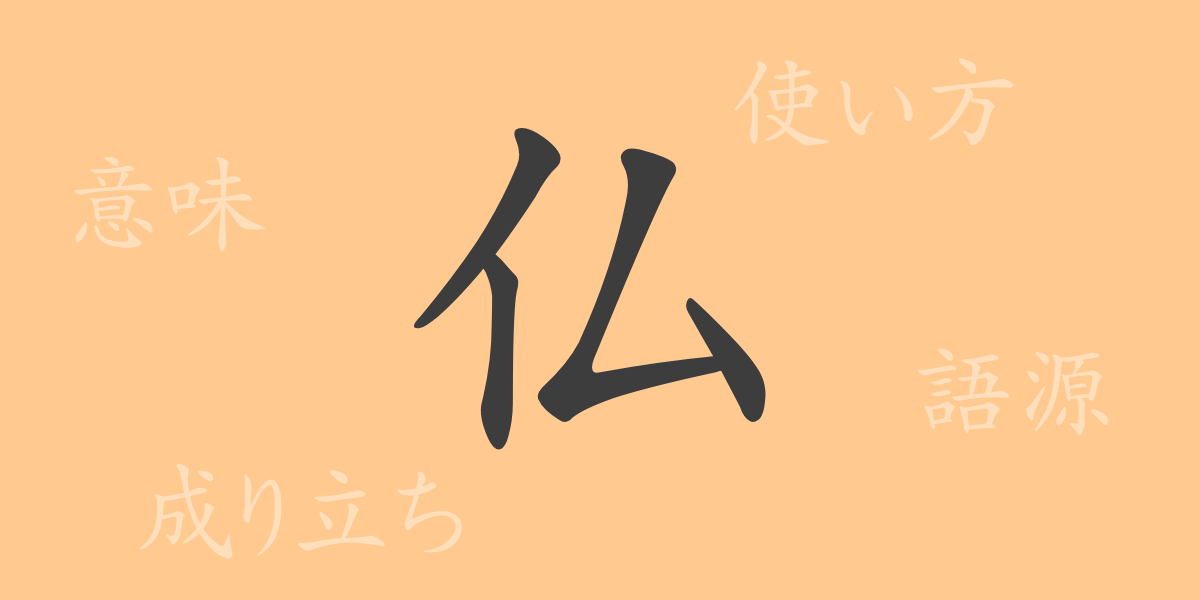Kanji (かんじ) deeply rooted in Japanese culture each have their own unique history and meaning. The kanji “仏 (ぶつ)” is no exception. In this article, we will delve into the rich etymology, meaning, usage, and idiomatic expressions of the kanji “仏 (ぶつ).” Let’s rediscover the charm of “仏 (ぶつ),” a familiar character in the Japanese language.
Origin of 仏 (ぶつ)
The kanji “仏 (ぶつ)” originated from ancient Indian scripts, specifically the Brahmi script. It was created to phonetically translate the Sanskrit word “Buddha (ブッダ)” as Buddhism spread to China. Initially, it combined the radical for “person” with “厶 (む),” symbolizing “a single person,” and came to represent the unique spirituality of “Buddha (ブッダ).”
Meaning and Usage of 仏 (ぶつ)
The kanji “仏 (ぶつ)” is primarily used to denote concepts related to Buddhism. Specifically, it often refers to “Buddha (ぶっだ),” an enlightened person or their teachings. Additionally, it is used for Buddhist statues and related objects. Moreover, it appears in expressions like “仏の顔も三度 (ぶつのかおもさんど),” indicating that even the most patient person has limits to their tolerance.
Pronunciation, Stroke Count, and Radical of 仏 (ぶつ)
Let’s look at the pronunciation and structure of the kanji “仏 (ぶつ).”
- Pronunciation: On’yomi (音読み) is “ブツ (ぶつ),” and Kun’yomi (訓読み) is “ほとけ (ほとけ)”
- Stroke Count: 4 strokes in total
- Radical: The radical is 人部 (ひとがしら)
Idioms, Sayings, and Proverbs Using 仏 (ぶつ)
There are numerous idioms, sayings, and proverbs that include the kanji “仏 (ぶつ).” Let’s explore a few of them.
- 仏心 (ぶっしん) – A deep sense of compassion and kindness towards others
- 仏顔 (ぶつがん) – A compassionate and serene facial expression
- 仏の顔も三度 (ぶつのかおもさんど) – Even a kind person will get angry if provoked repeatedly
- 仏作って魂入れず (ほとけつくってたましいいれず) – An analogy for something that is well-formed in appearance but lacks substance
- 仏の耳に念仏 (ほとけのみみにねんぶつ) – Meaning it is pointless to state the obvious
Summary of 仏 (ぶつ)
The kanji “仏 (ぶつ)” carries strong religious connotations related to Buddhist teachings and statues, while also being widely used in everyday expressions and proverbs. Each usage reflects the depth of Japanese spirituality and culture. The kanji “仏 (ぶつ),” imbued with Buddhist wisdom, continues to resonate with us, showcasing the richness of the Japanese language.

























